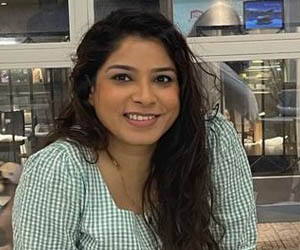On 11 February 2021, VIF organised a discussion on ‘Recent Developments in Myanmar: Implications for India’. Dr Arvind Gupta, Director VIF, welcomed the participants and delivered the opening remarks followed by brief presentations by Amb Gopalaswami Parthasarathy, Amb Gautam Mukhopadhya, and Major General Alok Deb. From the VIF, Gen Ravi Sawhney, Dr Sreeradha Datta and Cchavi Vasisht participated in the discussion. Dr Gupta defined the military coup as an unexpected event, though the political tensions were mounting in the country. The discussion aimed to address three major concerns. First, what will be the policy of Biden administration with their agenda to pitch democracy; and the scope of the imposition of sanctions. Second, how sustainable will this coup be? As it is declared to be for a year, will it continue to be in place for a year or there are chances for its revocation. Third, Myanmar is economically and politically close to China. Because of the imposition of international sanctions, there is a possibility of increasing dependence on China. India has taken a balanced approach and intends to keep options open in dealing with the military, and also highlighting the need to upkeep democratic transitions.
The discussion reflected on the reason for the military coup. One of the reasons stated is that the Commander-in-Chief term was coming to an end. Therefore, his personal ambition was involved as his successors were three years junior to him. The reason is also traced to the 2008 Constitution, which was framed to ensure military’s dominance. However, with the 2020 elections, the NLD won by almost 80 per cent. The popularity and victory of Aung San Suu Kyi imposed a threat to military dominance.
Many protests have erupted among doctors, teachers and bureaucrats, there are reports of military using restrains such as disruption of telecommunications and internet, use of water cannons, tear gas and others. In some places, even martial law is declared. The western international reactions have been sharp; however, the eastern reactions have been conflicted and restrained. For example, ASEAN could not give an outright condemnation. However, with the international condemnation and sanctions in place, Myanmar military will be rebuilding ties with China. For the current situation, India will have to continue its balanced approach. The lecturing and sanctioning approach will not be in India’s interests.
India and Myanmar defence and political relations are on an upswing. Nevertheless, development relationships are weak, such as declining trade, negligible investments by the private sector, lower air connectivity, declining business relations, and explosion of third-country goods from China. Few possibilities ahead in the economic sector is making Sittwe a functioning port, increasing capacity in agriculture and initiating small projects. Despite political instability, India should also look for long term investments. Further, a productive Northeast economy will be beneficial for expanding connectivity with Myanmar.
An opportunity that lies ahead of India, which all the participants agreed is to engage with our natural partner, i.e. Japan. Within QUAD, it is assumed that Australia will follow the US and therefore, India needs to engage with Japan to shape an exit strategy and relsolve the crisis in Myanmar. Another prospective partner with which India can enhance engagement is Thailand.
For addressing security-related problems, there is an urgent need to resolve the refugees’ problem rising in India. The Rohingya issue is a cause of concern, ARSA has carried out attacks after the coup as well. The Arakan Army threat is another concern for India, as India’s Sittwe project is like a white elephant due to AA’s presence. The question was raised about the possibility of interacting with ethnic parties, who have scored well during elections. However, it was concluded that since Bamars are in the majority, India needs to engage with them. It was also proposed that India could use its Buddhist card, and build a road connectivity project to Bodh Gaya for Myanmar tourists.
Dr Gupta summed up the discussion by stating that India should not subject to right and wrong as it needs to concentrate on its security. The Statement by MEA is balanced, and India needs to watch the developments in the country closely, and actively interact and collaborate. Democracy is important, and the basic principle to abide by Constitution must be promoted; therefore, India must promote dialogue between the military and the civilian government. India must not join the US and other countries for the imposition of sanctions. But must also be aware that the situation may worsen.








Post new comment